-

email us
lisa@simplewatersofteners.com
-

Call Us
(210) 960-2555
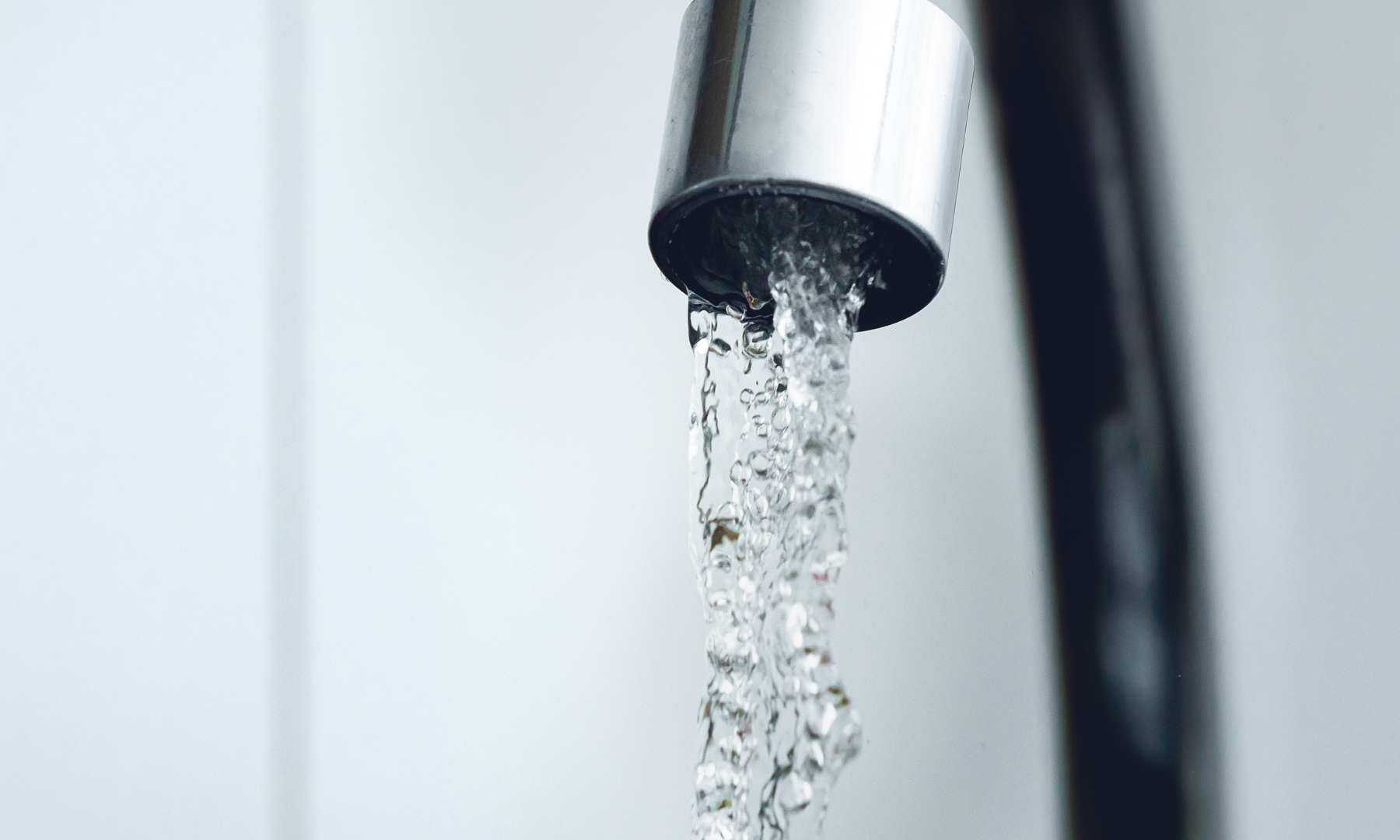
10 Mar. 2025
Hard Water vs. Soft Water: Why San Antonio Homeowners Need a Water Softener
San Antonio is known for its rich history, vibrant culture, and—unfortunately—its hard water. If you’ve noticed white spots on dishes, dry skin after showers, or scale buildup on appliances, you’re dealing with hard water. But what exactly is the difference between hard and soft water, and why does it matter for your home? Let’s break it down.
What is Hard Water?
Hard water contains high levels of dissolved minerals, primarily calcium and magnesium. While not harmful to drink, it can cause a range of household problems, including:
- Soap Scum Buildup – Hard water makes it difficult for soap and detergent to dissolve, leaving behind residue on skin, hair, and surfaces.
- Appliance Damage – Mineral buildup can clog pipes and reduce the efficiency of water heaters, dishwashers, and washing machines.
- Dry Skin and Hair – Hard water strips away natural oils, leading to dryness and irritation.
- Spotted Dishes and Glassware – Water spots and cloudy film appear on dishes, even after they’ve been washed.
- Reduced Water Flow – Scale buildup in pipes can decrease water pressure over time.
What is Soft Water?
Soft water is free of excessive minerals because it has been treated through a water softener. The softening process removes calcium and magnesium, replacing them with small amounts of sodium or potassium. This leads to several benefits:
- Cleaner Dishes and Laundry – Soap lathers better, leaving your dishes and clothes spotless.
- Softer Skin and Hair – Without mineral deposits, your skin and hair retain moisture, feeling smoother and healthier.
- Longer Appliance Lifespan – Water softeners help prevent scale buildup, extending the life of your plumbing and appliances.
- Lower Energy Bills – A water heater with soft water runs more efficiently, saving you money on energy costs.
- Less Cleaning, More Convenience – Say goodbye to scrubbing hard water stains off sinks, showers, and fixtures.
How a Water Softener Works
A water softener removes hard minerals through a process called ion exchange. As water passes through the softener’s resin beads, calcium and magnesium ions are exchanged for sodium or potassium ions. The result? Water that feels silkier, cleans better, and protects your home from scale buildup.
Does San Antonio Need Water Softeners?
Absolutely! San Antonio has some of the hardest water in Texas, with mineral levels often exceeding 15 grains per gallon (gpg)—well above the threshold for “very hard” water (7 gpg or higher). That means most homes in the area are dealing with hard water problems daily.
Get a Water Softener Today
If you’re tired of dealing with the effects of hard water, it’s time to invest in a quality water softener. At Simple Water Softeners, we provide expert solutions tailored to your home’s needs. Whether you need a new system or maintenance for your existing one, we’ve got you covered.
🔹 Contact us today to learn more about our top-rated water softeners in San Antonio.
- By:Lisa Bauer

10 Jan. 2025
How Hard Water Affects Your Skin and Hair During Winter
Winter often brings challenges for your skin and hair, but did you know that hard water can worsen these seasonal woes? With high levels of calcium and magnesium, hard water can leave your skin feeling dry and itchy and your hair brittle and unmanageable. Fortunately, there’s a solution: installing a water softener.
In this blog, we’ll explore how hard water impacts your skin and hair during winter and how a water softener can help.
What is Hard Water?
Hard water contains minerals like calcium and magnesium, which leave a residue on your skin and hair. This residue can block moisture, leading to dryness and irritation. During winter, the effects of hard water become more noticeable as cold temperatures and indoor heating already strip your skin and hair of their natural hydration.
The Impact of Hard Water on Skin
- Dryness and Irritation
Hard water creates a mineral film on your skin, making it harder for moisturizers to penetrate. This leads to dry, flaky skin that feels tight and uncomfortable. - Exacerbation of Skin Conditions
Eczema and psoriasis can worsen with hard water exposure, as mineral buildup irritates sensitive skin. - Clogged Pores and Dull Skin
Residue from hard water can clog pores, leaving skin looking dull and feeling itchy.
The Impact of Hard Water on Hair
- Brittle, Frizzy Hair
Hard water prevents conditioners from fully penetrating hair strands, resulting in dryness, frizz, and split ends. - Scalp Issues
The minerals in hard water can dry out your scalp, causing dandruff and irritation. - Dull Appearance
Hard water leaves a residue on your hair, making it look limp and lifeless.
How a Water Softener Can Help
- Hydration and Moisture Retention
Soft water prevents mineral buildup, allowing your skin and hair to retain their natural moisture. - Improved Product Absorption
Without mineral residue, moisturizers and conditioners work more effectively, leaving you with smooth skin and soft, shiny hair. - Healthier Skin and Hair
Soft water reduces irritation, making it an excellent choice for sensitive skin and scalp conditions.
Take Action Today for Healthier Skin and Hair
This winter, don’t let hard water steal your comfort. At Simple Water Softeners, we offer affordable, efficient water softener systems tailored to your home’s needs. Fill out our online form today for a free consultation, and take the first step towards softer water and healthier skin and hair.
- By:Lisa Bauer

06 Dec. 2024
Preparing Your Water Softener for Holiday Guests: A Quick Guide for San Antonio Homeowners
The holiday season is here, and for many homeowners in the San Antonio area, it means hosting family and friends. With more people using your water system, your water softener will be working overtime. Proper preparation ensures your water softener operates efficiently, keeping your guests comfortable and your home running smoothly. Here’s a quick guide to getting your water softener ready for the extra demand this holiday season.
Why Your Water Softener Matters During the Holidays in San Antonio
In the San Antonio area, where hard water is a common issue, a water softener is essential year-round. During the holidays, it plays an even more critical role by:
- Improving Cleaning Efficiency: Dishes, linens, and laundry come out spotless with soft water.
- Protecting Plumbing and Appliances: Soft water prevents scale buildup, reducing clogs and damage to your pipes and appliances.
- Enhancing Guest Comfort: Soft water is gentler on skin and hair, offering your guests a luxurious experience.
Steps to Prepare Your Water Softener for Holiday Use in San Antonio
1. Check Your Salt Levels
San Antonio’s hard water requires your water softener to use salt effectively to remove hardness minerals.
- Open the brine tank and ensure the salt level is at least halfway full.
- If you notice a crusty layer (salt bridge), gently break it up or remove it.
- Refill the tank with high-quality salt specifically designed for water softeners.
2. Perform a System Regeneration
Regenerating your water softener cleans the resin beads, ensuring they’re ready to handle the increased water usage typical during the holidays.
- Many systems regenerate automatically, but you can manually start a regeneration cycle for optimal performance.
- Check your user manual or contact a local San Antonio water softener expert for guidance.
3. Inspect for Salt Buildup or Clogs
San Antonio’s hard water can lead to salt and mineral deposits in your water softener system.
- Inspect the brine tank for clogs or residue.
- If buildup is present, clean the tank by draining it, rinsing with warm water, and refilling it with fresh salt.
4. Adjust Your System Settings
With more guests in your home, your water usage will increase. Adjust your water softener settings to keep up with the demand.
- Verify the hardness level setting matches San Antonio’s hard water conditions.
- Increase the regeneration frequency temporarily to maintain consistent performance.
5. Check Your Water Pressure
Proper water pressure is essential for your water softener to function effectively.
- Ensure your water pressure is within the recommended range (typically 40–70 psi).
- If you experience weak water flow, inspect your plumbing for leaks or blockages or contact a San Antonio plumbing expert.
6. Test the System for Optimal Performance
Run a quick test to ensure your water softener is operating correctly.
- Check for error codes or warning lights on your system.
- Perform a simple soap test: soft water should lather easily and leave no residue.
7. Stock Up on Supplies
Avoid holiday interruptions by having extra supplies on hand.
- Keep an extra bag of salt to ensure your water softener runs smoothly.
- Consider a maintenance kit for quick fixes or adjustments.
The Benefits of a Well-Maintained Water Softener in San Antonio
In a region like San Antonio, where hard water is a persistent issue, a well-maintained water softener ensures:
- Cleaner, Spot-Free Dishes: Your holiday table settings will shine without unsightly spots or film.
- Comfortable Showers for Guests: Soft water is gentle on hair and skin, providing a spa-like experience.
- Protection for Your Home: Your appliances and plumbing stay safe from hard water damage, saving you money in the long run.
Schedule Professional Water Softener Maintenance in San Antonio
Preparing your water softener for the holiday season is vital to maintaining a smooth and stress-free home. If you’re unsure about performing these tasks or need professional assistance, Simple Water Softeners is here to help.
Contact us today for expert water softener maintenance and service in the San Antonio area. Let us ensure your system is holiday-ready, so you can focus on creating memorable moments with your family and friends!
- By:Lisa Bauer
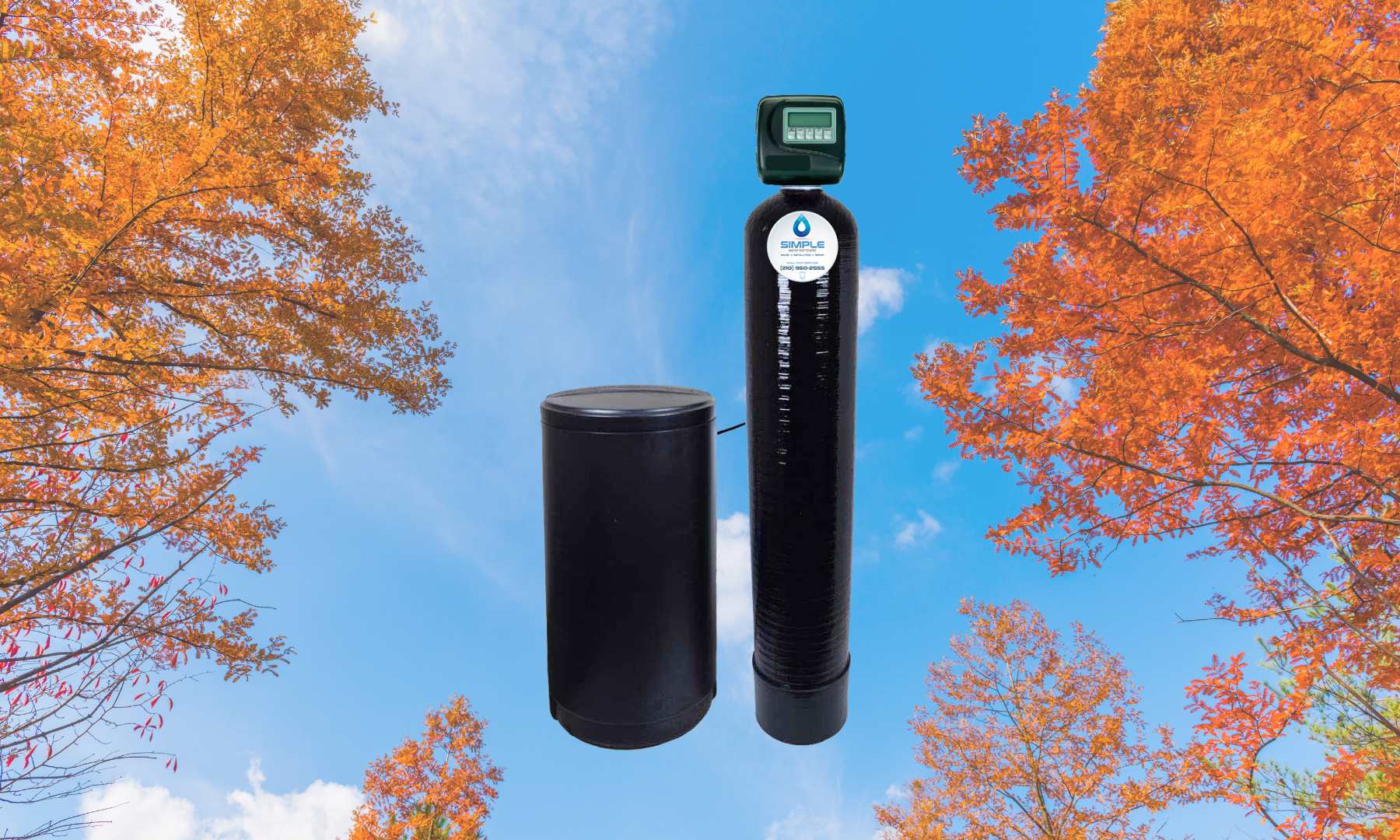
04 Oct. 2024
Fall Maintenance Tips for Your Water Softener System
As fall brings cooler temperatures and shifts in daily routines, it’s essential to ensure your water softener system is running smoothly. With the upcoming winter months, you want to avoid any disruptions that could impact your home’s water quality. To help, we’ve created a simple checklist of fall maintenance tips that will keep your water softener in top shape throughout the season.
1. Inspect the Salt Level
The salt in your brine tank plays a vital role in regenerating the resin beads that soften your water. During fall, it’s important to check your system’s salt level at least once a month. Make sure the salt is no lower than the halfway point. If it’s too low, your water softener won’t be able to perform effectively.
- Pro Tip: Use high-quality salt pellets to reduce buildup and ensure optimal performance.
2. Clean the Brine Tank
Over time, impurities from salt can build up in your brine tank, leading to what’s known as a “salt bridge” or “mushing.” This can prevent your system from properly softening the water. Fall is a great time to clean the tank and remove any salt buildup or sediment.
- How to clean: Simply disconnect the power, remove any salt, and scrub the inside with warm water and dish soap before refilling with fresh salt.
3. Check for Salt Bridges
Salt bridges can form when salt hardens and creates a crusty layer inside the brine tank. This can disrupt the regeneration process and reduce the effectiveness of your system. After checking your salt levels, gently tap the top of the salt with a broom handle to see if it’s hardened. If you find a salt bridge, break it up carefully.
4. Test Water Hardness
As the seasons change, the hardness level of your water may fluctuate. It’s a good idea to test your water hardness during the fall to make sure your water softener settings are calibrated correctly. You can purchase a simple water hardness test kit or request professional testing.
- Adjustment: If the hardness level has changed, adjust your water softener’s settings accordingly to ensure efficient operation.
5. Inspect and Clean the Resin Beads
The resin beads inside your water softener are responsible for attracting and removing minerals that cause hard water. Over time, they can become clogged with iron or other impurities. Cleaning the resin bed with a special resin cleaner ensures that your system can continue to function effectively.
- Pro Tip: You may want to schedule a professional cleaning or use a resin cleaner every six months to maintain optimal efficiency.
6. Flush the System
Occasionally flushing your water softener system is a good way to remove any lingering debris or buildup in the unit. This helps keep your system running smoothly and can prevent clogging.
- Simple flush: Manually initiate a regeneration cycle or follow the manufacturer’s instructions to run a full system flush.
7. Inspect Hoses and Connections
Fall is the perfect time to inspect all the hoses and connections on your water softener. Look for any signs of wear, leaks, or corrosion, especially if your system is located in a damp or cold area, such as a basement or garage.
- Pro Tip: If you find any cracks or leaks, it’s important to replace the affected parts to prevent further damage.
8. Check the Bypass Valve
The bypass valve allows you to control the flow of water in and out of the water softener. Make sure the valve is working properly and isn’t clogged with debris. This will ensure your system operates efficiently and provides soft water when needed.
9. Review the System Manual
If it’s been a while since you last looked at your water softener’s manual, now’s a great time to review it. The manual may include specific fall or seasonal maintenance tips for your particular model. This can help you stay on top of any unique tasks that could prolong the life of your system.
10. Schedule a Professional Tune-Up
While many maintenance tasks can be done yourself, scheduling a professional water softener tune-up is a great idea during the fall. A qualified technician can inspect all parts of the system, check for any issues you may have missed, and perform a thorough cleaning to keep your system running efficiently.
Conclusion
By following these fall maintenance tips, you can ensure your water softener continues to provide soft, clean water throughout the cooler months. Regular upkeep not only improves the performance of your system but also extends its lifespan, saving you money in the long run. For any questions or to schedule a professional tune-up, contact Simple Water Softeners today!
- By:Lisa Bauer
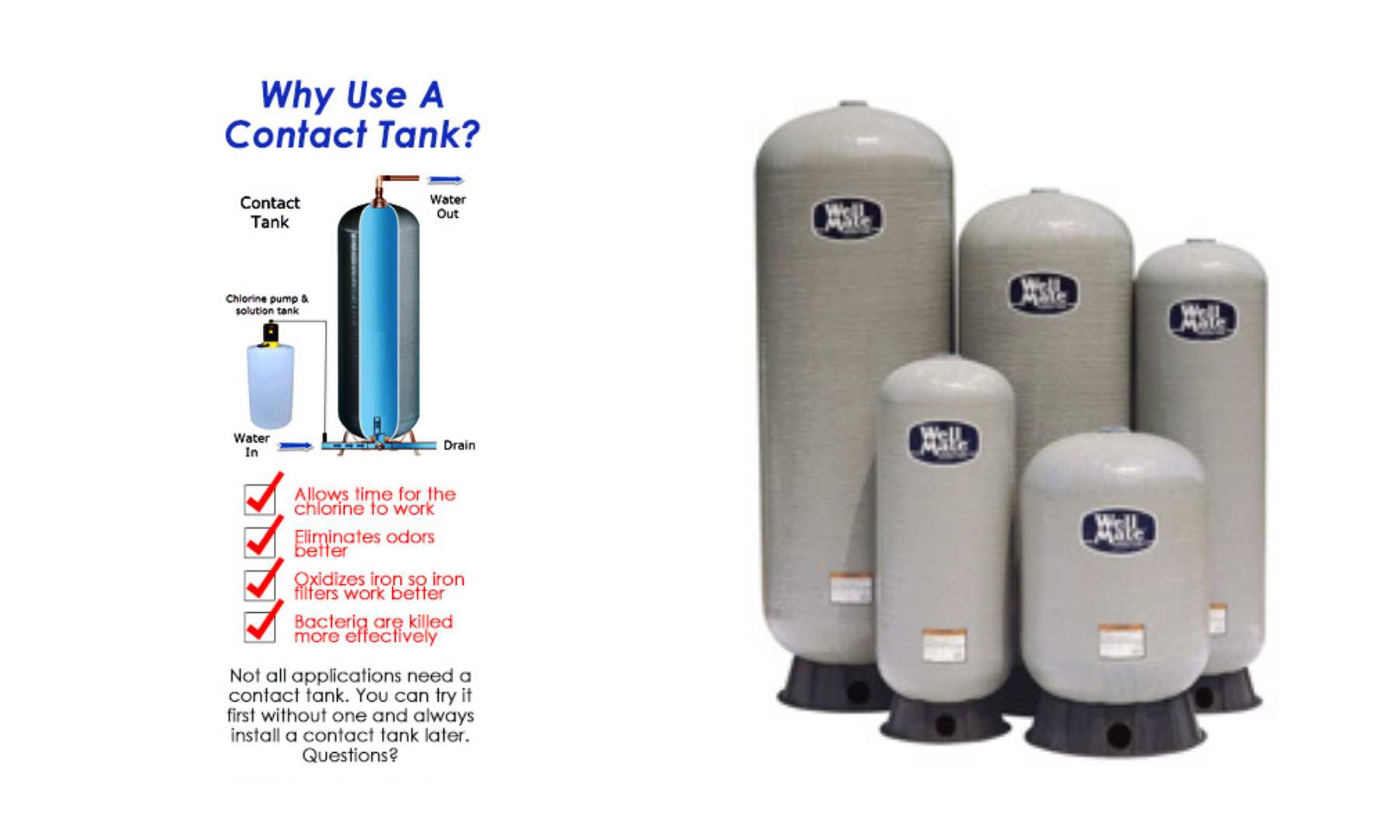
01 Aug. 2024
The Importance of Retention Tanks in Water Treatment for San Antonio Homes
Ensuring Optimum Water Quality in San Antonio
At Simple Water Softeners, we understand the unique water treatment needs of San Antonio residents. The hard water prevalent in our area requires specialized solutions to ensure the highest quality water for your home. One crucial component of our water treatment systems is the retention tank. Retention tanks play a vital role in ensuring that your water is not only softened but also safe and free from harmful contaminants. In this blog post, we will explore the significance of retention tanks in chemical treatment processes and highlight the features of our durable and efficient retention tanks specifically designed for San Antonio homes.
What is a Retention Tank?
A retention tank is a storage tank that holds water for a specified period, allowing for adequate contact time during chemical treatment. This contact time is essential for the effective removal of contaminants and the proper functioning of the water treatment process. Retention tanks are especially important in systems that use chemicals to treat water, as they ensure that the chemicals have enough time to interact with the water and perform their intended functions.
The Role of Retention Tanks in Chemical Treatment
During chemical treatment, various chemicals are added to the water to eliminate impurities, neutralize harmful substances, and improve overall water quality. For these chemicals to work effectively, they need sufficient time to react with the water. This is where retention tanks come into play. By providing a controlled environment for the water to reside in, retention tanks ensure that the chemicals have the necessary contact time to achieve optimal results.
Features of Our Retention Tanks
At Simple Water Softeners, we take pride in offering top-of-the-line retention tanks that are designed to meet the highest standards of quality and durability. Here are some key features of our retention tanks:
- Optimum Contact Time: Our retention tanks are meticulously sized to provide the ideal contact time required for chemical treatment. This ensures that the chemicals have ample time to react with the water, leading to effective contaminant removal and improved water quality.
- Lightweight and Durable: Our retention tanks are made from NSF-listed polyethylene, which is known for its lightweight yet robust properties. This makes our tanks easy to install and maintain while ensuring long-lasting performance.
- Non-Corrosive Design: The seamless, one-piece inner shell of our retention tanks is completely non-corrosive. This is crucial for maintaining the integrity of the tank and preventing any chemical reactions that could compromise the water treatment process.
- Seamless Construction: The seamless construction of our retention tanks eliminates the risk of leaks and ensures that the tank remains structurally sound over time. This contributes to the overall reliability and efficiency of the water treatment system.
Why Choose Simple Water Softeners for Your San Antonio Home?
When it comes to water treatment in San Antonio, quality and reliability are paramount. At Simple Water Softeners, we are committed to providing our customers with the best solutions to meet their water quality needs. Our retention tanks are just one example of our dedication to excellence. By choosing our products, you can trust that you are investing in a system that will deliver superior performance and long-term benefits for your home.
Local Expertise and Service
As a local business, we understand the specific challenges that San Antonio residents face with their water quality. Our team is familiar with the unique characteristics of the area’s water supply and is equipped to provide customized solutions that address these issues effectively. From the initial consultation to installation and ongoing maintenance, Simple Water Softeners is your trusted partner for all your water treatment needs in San Antonio.
Conclusion
Retention tanks are a critical component of effective water treatment systems, especially in areas with hard water like San Antonio. They ensure that chemicals have the necessary contact time to interact with the water, leading to the removal of contaminants and the enhancement of water quality. At Simple Water Softeners, our durable, lightweight, and non-corrosive retention tanks are designed to provide optimal performance and reliability. Trust us to deliver the best water treatment solutions for your San Antonio home. Contact us today to learn more about our products and how we can help you achieve the highest quality water for your home.
- By:Lisa Bauer

12 Jun. 2024
The Impact of High Temperatures on Water Quality
- Increased Mineral Concentration
-
- During summer, water levels in reservoirs and rivers can drop due to evaporation. This results in higher concentrations of minerals like calcium and magnesium in the water supply. These minerals contribute to water hardness, which can cause scaling in pipes, reduce the effectiveness of soap and detergents, and leave unsightly spots on dishes and fixtures. Water hardness does fluctuate.
- Higher Water Usage
- Hot weather often leads to increased water usage as people take more showers, fill up swimming pools, and water their lawns and gardens more frequently. This spike in demand can strain municipal water supplies, sometimes leading to temporary compromises in water quality.
- Biological Contaminants
- Warm temperatures can promote the growth of bacteria and algae in water sources. While municipal water treatment facilities are equipped to handle these contaminants, occasional lapses can occur, especially during peak usage times.A UV light will guarantee you to have no bacteria in your water.
How Water Softeners Help
- Removing Hard Minerals
- Water softeners are designed to remove calcium and magnesium ions from your water through a process called ion exchange. This process replaces hard minerals with sodium or potassium ions, resulting in softer water that is gentler on your plumbing and appliances.
- Protecting Your Appliances
- Soft water helps prevent the buildup of scale in your water heater, dishwasher, and other appliances. This not only extends their lifespan but also ensures they operate more efficiently, saving you money on energy bills.
- Improving Skin and Hair Health
- Soft water is kinder to your skin and hair. Hard water can strip away natural oils, leading to dryness and irritation. By using a water softener, you can enjoy softer, smoother skin and hair, even during the hottest months.
- Enhanced Cleaning Efficiency
- With soft water, soaps and detergents lather better and rinse more completely. This means cleaner clothes, dishes, and surfaces with less effort and fewer cleaning products.
Tips for Keeping Your Water Soft During Summer
- Regular Maintenance
- Ensure your water softener is properly maintained. Check the salt levels in the brine tank regularly and add salt as needed. Clean the brine tank periodically to prevent salt bridges and other issues.
- Monitor Water Usage
- Be mindful of your water usage during peak times. Your valve will tell you how much water goes into the house every day for the last 63 days. Watch the flow rate meter to detect if there is a leak in the house. This will make you a good neighbor and ensure your house is running correctly in many aspects.
- Consider a Whole House Filter
- Installing a Whole House Filter can help remove chemicals (Chlorine, Herbicides, Pesticides and Organics) from your water before it reaches the water softener. This can improve the efficiency and lifespan of your water softening system.
- Schedule Professional Inspections
- Have a professional inspect your water softener system when you are having issues. People who are licensed in Water Treatment from the State of Texas, know how to repair water softeners. People who do not know how to repair will say replace. If you have bought off the internet or a big box store you will probably dispose of and start over. But if you bought a high quality system reach out to someone to repair the system will probably be kept going for 12 to 15 years plus.
Conclusion
Maintaining soft water quality during the summer months is essential for protecting your home’s plumbing, appliances, and your family’s well-being. By understanding the impact of high temperatures on water quality and taking proactive steps with your water softener, you can enjoy the benefits of soft water all summer long. For more tips and professional assistance, contact Simple Water Softeners at (210) 960-2555. We’re here to help you keep your water soft and your home running smoothly, no matter the season.
- By:Lisa Bauer
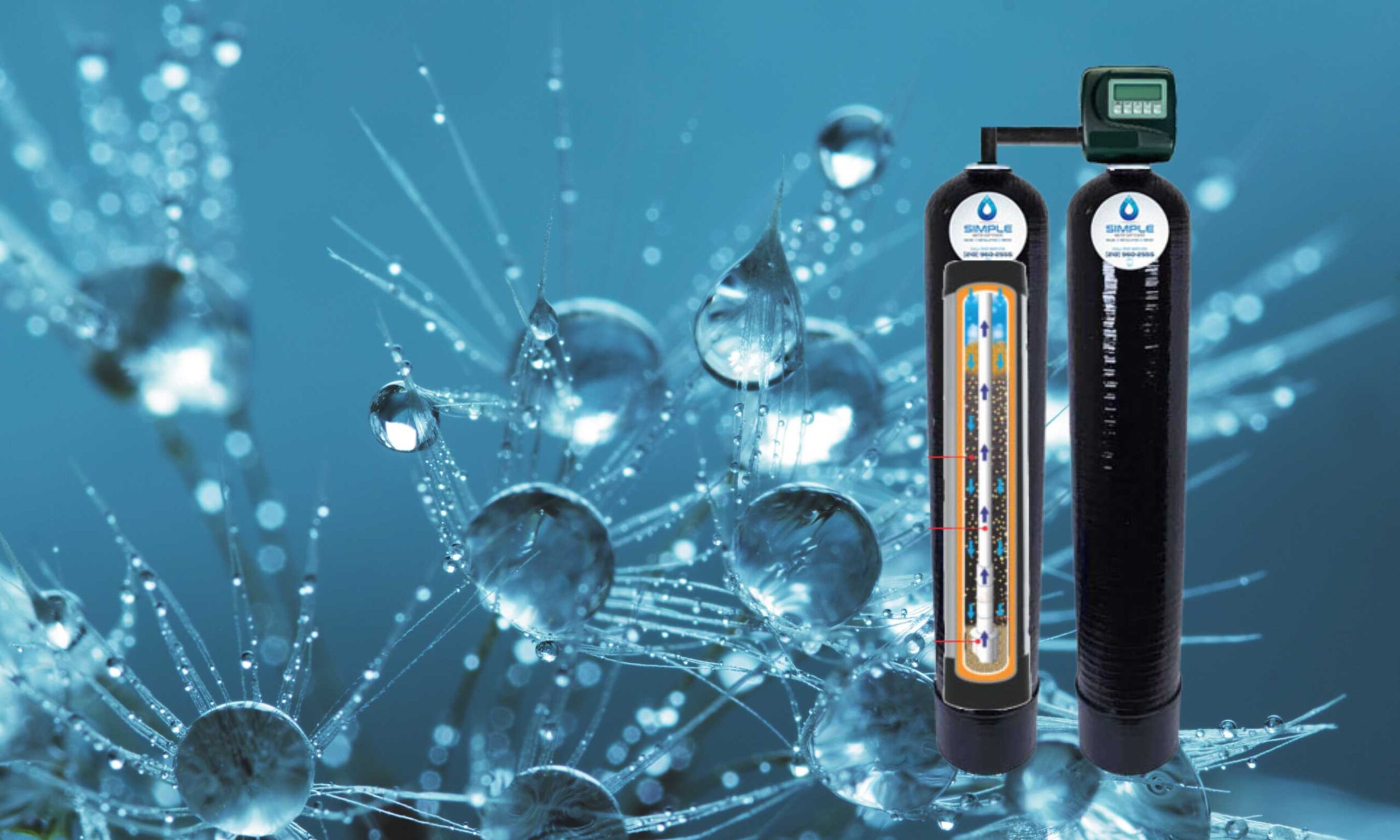
03 Apr. 2024
The Science Behind Water Softening: How It Works and Why It Matters for San Antonio Homes
Water softening is a crucial process for many homeowners in San Antonio, where the tap water is known for its hardness. This hard water can lead to various issues, from scale buildup in plumbing to inefficiencies in home appliances. Understanding the science behind water softening and its benefits can help San Antonio residents make informed decisions about managing their water quality. This article explores how water softeners work and why they are essential for homes in the region.
The Hard Water Challenge in San Antonio
San Antonio’s water supply is characterized by high levels of minerals, primarily calcium and magnesium, which make the water “hard.” While not harmful to health, these minerals can cause lime-scale buildup in pipes and appliances, reducing efficiency and leading to costly repairs. Hard water also affects soap’s ability to lather, leading to higher consumption of cleaning products and a less satisfying bathing experience.
How Water Softeners Work
Water softeners address the hard water problem through a process known as ion exchange. The science is straightforward but effective:
- Ion Exchange Resin: Water softeners contain a resin bed filled with tiny ion exchange resin beads. These beads are charged with sodium ions (salt).
- Hard Water Treatment: As hard water passes through the resin bed, the calcium, and magnesium ions, which cause water hardness, are attracted to and held by the resin beads.
- Ion Replacement: Simultaneously, the resin beads release their sodium ions into the water in exchange for the hard water minerals. This process effectively “softens” the water by removing the minerals that cause hardness.
- Regeneration: After a certain period, the resin beads become saturated with calcium and magnesium ions. The water softener enters a regeneration cycle, flushing the beads with a strong brine solution. The high concentration of salt in the brine displaces the calcium and magnesium, renewing the resin bed and preparing it for more softening action.
Benefits of Water Softening for San Antonio Homes
- Extended Appliance Life
Soft water minimizes scale buildup in appliances like water heaters, dishwashers, and washing machines, extending their lifespan and maintaining their efficiency.
- Improved Cleaning Efficiency
Soft water reacts more effectively with soap and detergents, creating a better lather and reducing the amount of product needed for cleaning tasks.
- Enhanced Water Heating Efficiency
Scale buildup from hard water can insulate heating elements, making them less efficient. Soft water maintains the efficiency of water heaters, potentially lowering energy costs.
- Protection for Plumbing
Soft water reduces the risk of lime-scale deposits in plumbing, maintaining water flow and preventing blockages and corrosion over time.
- Better Skin and Hair
Soft water is gentler on the skin and hair, helping to maintain natural oils and preventing the dryness often associated with hard water.
For San Antonio homes grappling with hard water challenges, investing in a water softener is not just about enhancing the quality of water—it’s about protecting your home and improving your quality of life. Understanding the science behind water softening highlights its importance and benefits, providing a clear solution to the region’s water quality issues. By embracing water softening technology, San Antonio residents can enjoy cleaner, more efficient homes and a better overall water experience.
Don’t let hard water compromise your home and lifestyle.
Simple Water Softeners is here to help you tackle San Antonio’s unique water quality challenges head-on. Contact us today to explore the best water softening solutions tailored specifically for your home. Our team of experts is ready to guide you through selecting the perfect system to protect your appliances, plumbing, and ensure your family enjoys the comfort of soft water every day. Make the switch to soft water with Simple Water Softeners now, and take the first step towards a more efficient, comfortable home.
- By:Lisa Bauer
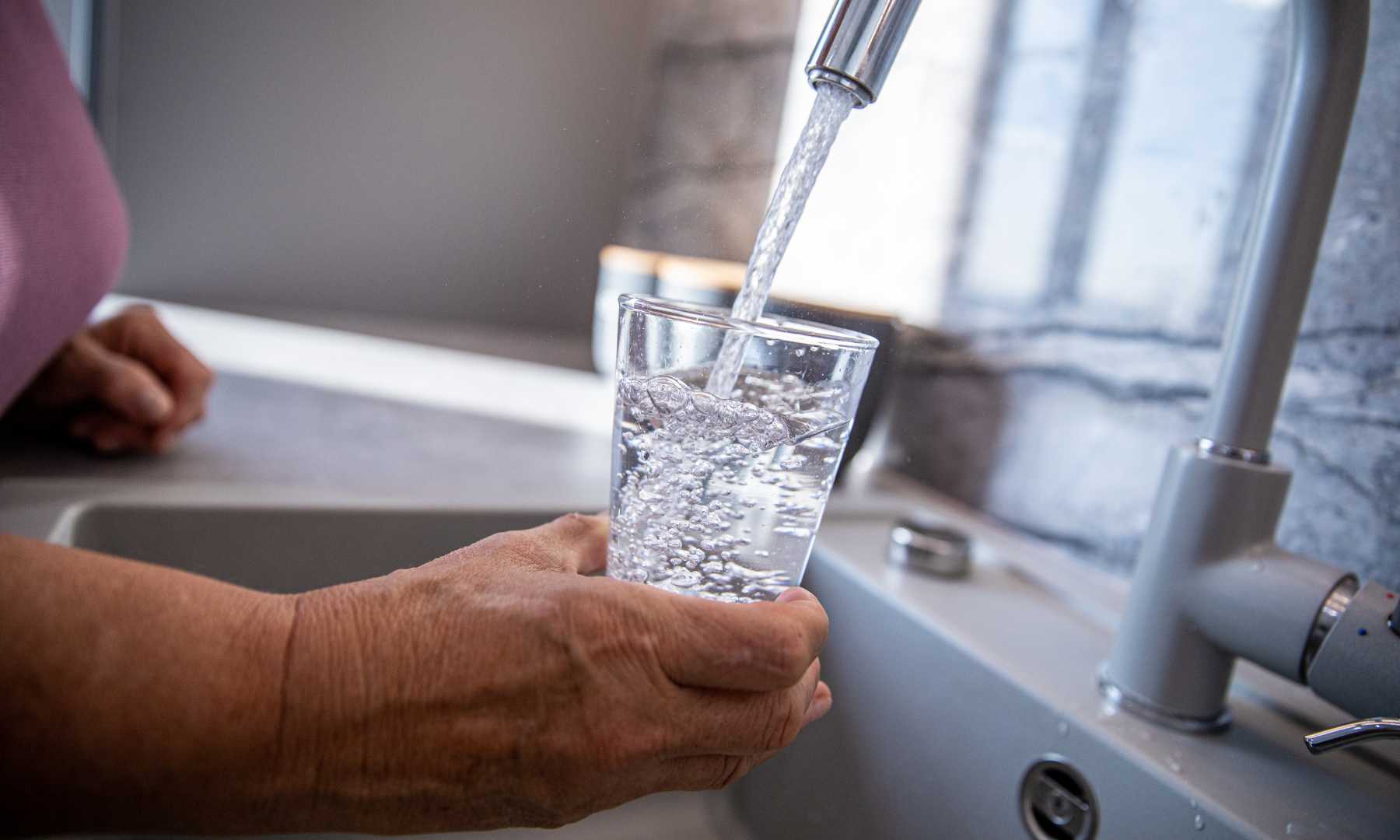
04 Jan. 2024
The Importance of Water Softening in Winter: Combatting Hard Water Challenges
As temperatures drop and winter takes hold, homeowners in Texas face a myriad of challenges, not least among them being the battle against hard water. While hard water is a year-round concern, winter uniquely intensifies its effects, making water softening an essential task for maintaining your home’s efficiency and comfort. In this post, we’ll explore why hard water becomes a more significant issue in winter and how a water softening system can be a game-changer.
- By:Lisa Bauer
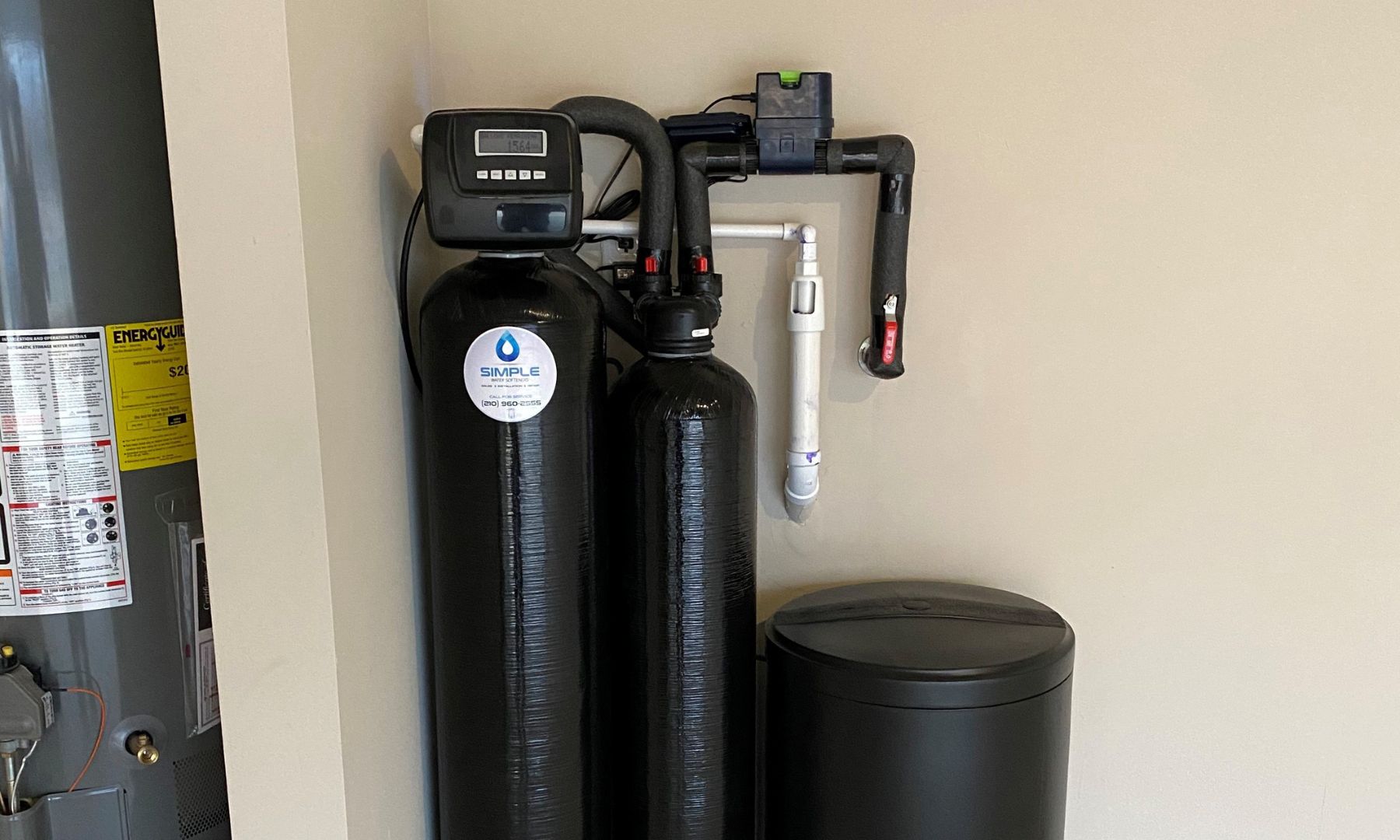
15 May. 2023
Invest in Your Home’s Future with Quality Water Softeners.
Ensuring Soft Water for Your Home: Why It Matters More Than You Think.
When it comes to investing in your new home, quality should be your top priority. You’ve likely put a lot of thought into appliances, furniture, and even the garage. But have you considered the impact of hard water on your home and possessions?
Meet the unsung hero of household appliances: the water softener. In this blog post, Lisa Bauer from Simple Water Softeners, explains the importance of having soft water in your home and how it can protect your valuable investments.
- By:Lisa Bauer
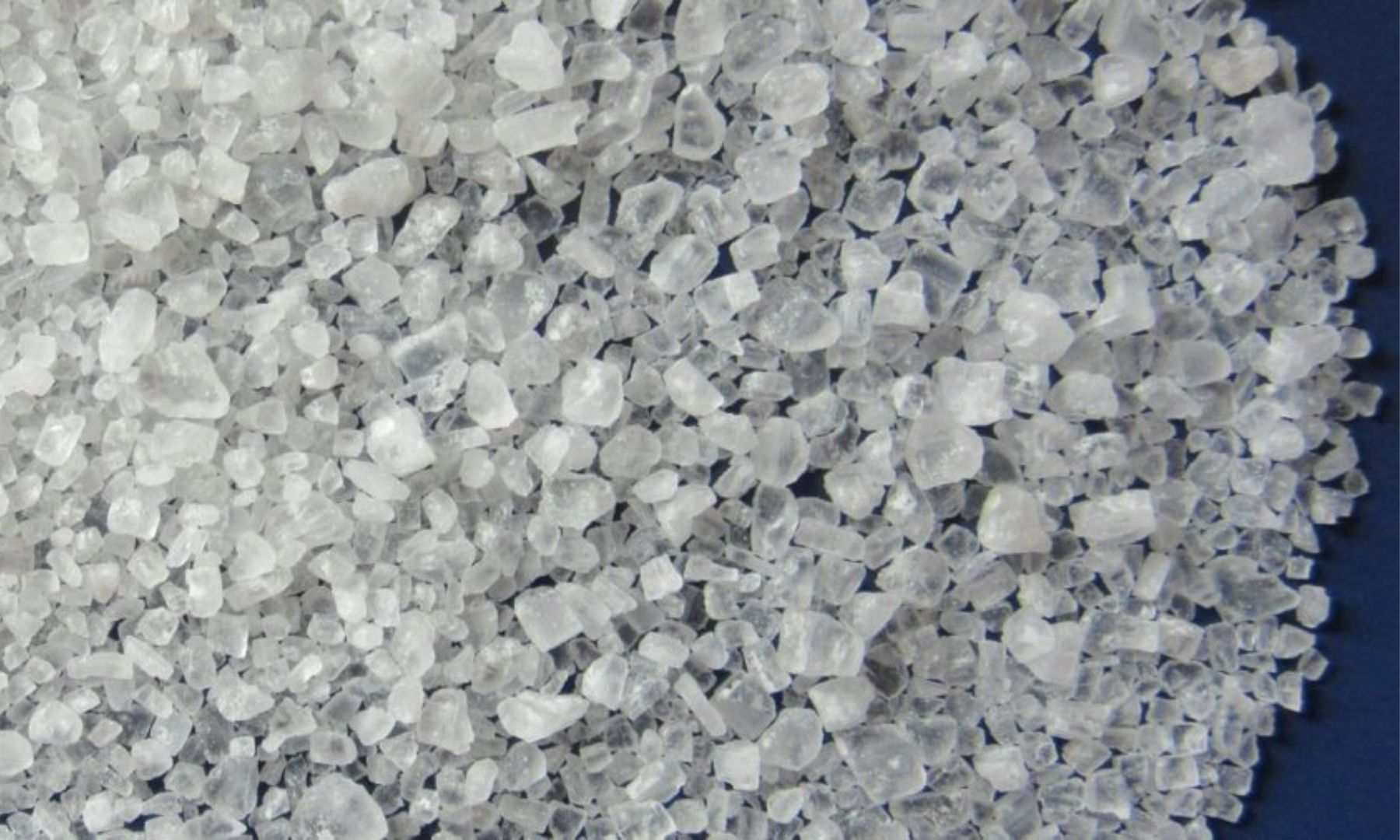
17 Apr. 2023
Comparing Salt-Based and Salt-Free Water Softening Systems
Are you tired of dealing with the effects of hard water in your home? You may be considering a water softener but feel overwhelmed by the choices between salt-based and salt-free systems. Why should you carry bags of salt if there is a salt-free alternative, right? Before making a decision, it’s crucial to understand how these systems work and their benefits and limitations.
- By:Lisa Bauer
